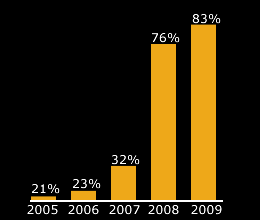Equity capital generally is composed of funds that are raised by a business in exchange for an ownership interest in the company. This interest can be in the form of ownership of common or preferred stock or instruments that convert into stock.
In addition to taking an ownership interest in your company, equity investors may also participate as a member of the company’s board of directors and take an active role in managing your company. However, in comparison to debt financing, or loans, which must be repaid over time, equity financing does not have to be repaid.
While equity investing can come from family and friends, it’s often raised from high net-worth individuals or from venture capital or private equity firms. Investors are looking for early stage companies that can’t yet obtain traditional financing; a return on their investment of at least 30-40 percent and a clear strategy to realize their investment within 3-7 years.











